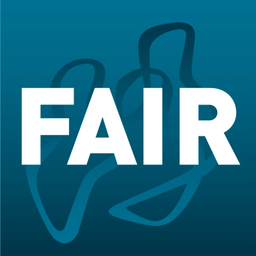
by FAIR Project, Peace Research Institute Oslo (PRIO)
Moral philosophers Henrik Syse and Kristoffer Lidén at the Peace Research Institute Oslo (PRIO) consult with leading scholars to ask: What are the core ethical considerations in peace negotiations, and what makes peace negotiations fair? Issues include civil society inclusion in Guatemala and Colombia, barring or bringing memory to the table in Israel-Palestine, women’s campaigns for a seat at the table in Mali, and trust building in negotiations leading to the Joint Comprehensive Plan of Action for Iran. Read more about the FAIR project and the case studies here: www.prio.org/projects/1885
Language
🇺🇲
Publishing Since
7/20/2023
Email Addresses
1 available
Phone Numbers
0 available

March 21, 2024
<p>Starting from a controversy over Pope Francis’ recent statement that Ukraine should enter into peace negotiations with Russia, this interview with former President of Colombia and Nobel Peace Prize laureate Juan Manuel Santos queries into ethical dimensions of the Colombian peace negotiations with the FARC. Topics covered include the treatment of ‘the enemy’ as allies in the pursuit of peace, and the centrality of victims’ perspectives for the negotiation process. President Santos also discusses the virtue of careful planning, and the personal qualities that are required from a negotiator. Then, the conversation turns to lessons to be drawn for peace processes elsewhere, in particular the Israel-Palestine negotiations – both over Gaza and in continuation of the Oslo process. In the last part of the conversation, Santos argues for a pragmatic approach to justice where the idea is to get ‘as much justice as possible’ when making peace. The idea of peace <em>versus</em> justice is criticised for ignoring the justice <em>of</em> peace.</p> <p><br></p> <p>This podcast was recorded on 12 March 2024.</p> <p> <strong>Read more about the FAIR project </strong><a href="https://www.prio.org/projects/1885">here.</a> </p>

September 4, 2023
<p><strong>What is the outcome of peace talks in which government authorities have been excluded or sidelined? In this episode </strong><a href="https://www.prio.org/people/3469" target="_blank" rel="noopener noreferrer">Henrik Syse</a><strong> and </strong><a href="https://www.prio.org/people/5134" target="_blank" rel="noopener noreferrer">Kristoffer Liden</a><strong> from the </strong><a href="https://www.prio.org/" target="_blank" rel="noopener noreferrer">Peace Research Institute Oslo (PRIO)</a><strong> are joined by</strong><a href="https://www.prio.org/people/3472" target="_blank" rel="noopener noreferrer"> Kristian Berg Harpviken</a><strong> (PRIO) to discuss the US Talks with the Afghan Taliban.</strong><br></p> <p><strong>Harpviken draws on his scholarship to uncover how the sidelining of the Afghan government paved the way for the Taliban takeover.</strong><br><strong>The case brief discussed can be accessed </strong><a href="https://www.prio.org/publications/13589" target="_blank" rel="noopener noreferrer">here</a><strong> for free. Read more about the FAIR project </strong><a href="https://www.prio.org/projects/1885" target="_blank" rel="noopener noreferrer">here.</a><br></p>

July 31, 2023
<p>How is trust between states built after having been threatened or broken by threats and sanctions? In this episode <a href="https://www.prio.org/people/3469" target="_blank" rel="noopener noreferer">Henrik Syse</a> and <a href="https://www.prio.org/people/5134" target="_blank" rel="noopener noreferer">Kristoffer Liden</a> from the <a href="https://www.prio.org/" target="_blank" rel="noopener noreferer">Peace Research Institute Oslo (PRIO)</a> are joined by <a href="https://www.prio.org/people/5036" target="_blank" rel="noopener noreferer">Dr. Gregory M Reichberg</a> (PRIO) to discuss the importance of trust and respect in negotiations leading up to the Joint Comprehensive Plan of Action (JCPOA) between Iran and the P5+1 (the five permanent members of the UN Security Council plus Germany) together with the European Union.</p> <p>Dr. Reichberg draws on his scholarship and policy-oriented experience to uncover how public and interpersonal efforts of negotiators bolstered mutual respect.</p> <p>The case brief discussed can be accessed <a href="https://www.prio.org/publications/13218" target="_blank" rel="noopener noreferer">here</a> for free. Read more about the FAIR project <a href="https://www.prio.org/projects/1885" target="_blank" rel="noopener noreferer">here.</a></p> <p> </p>
Pod Engine is not affiliated with, endorsed by, or officially connected with any of the podcasts displayed on this platform. We operate independently as a podcast discovery and analytics service.
All podcast artwork, thumbnails, and content displayed on this page are the property of their respective owners and are protected by applicable copyright laws. This includes, but is not limited to, podcast cover art, episode artwork, show descriptions, episode titles, transcripts, audio snippets, and any other content originating from the podcast creators or their licensors.
We display this content under fair use principles and/or implied license for the purpose of podcast discovery, information, and commentary. We make no claim of ownership over any podcast content, artwork, or related materials shown on this platform. All trademarks, service marks, and trade names are the property of their respective owners.
While we strive to ensure all content usage is properly authorized, if you are a rights holder and believe your content is being used inappropriately or without proper authorization, please contact us immediately at [email protected] for prompt review and appropriate action, which may include content removal or proper attribution.
By accessing and using this platform, you acknowledge and agree to respect all applicable copyright laws and intellectual property rights of content owners. Any unauthorized reproduction, distribution, or commercial use of the content displayed on this platform is strictly prohibited.